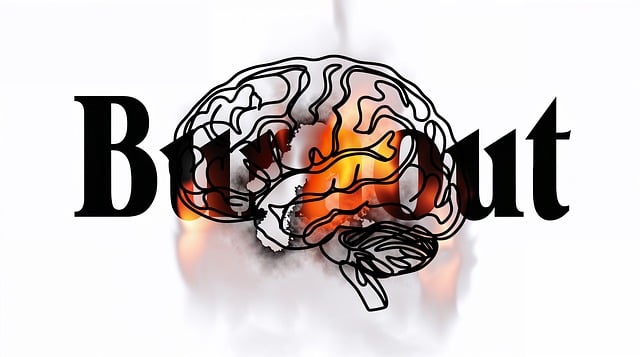Risk management planning is vital in mental health practice, focusing on safety and well-being for clients and professionals. Mental health practitioners must address crises, behaviors, and ethical dilemmas, especially in dynamic areas like Castle Rock ADD-ADHD evaluations and therapy. Effective strategies involve stress reduction, emotional healing, self-care, and enhanced communication, creating a supportive environment. For Castle Rock practices, this combines evidence-based therapies with mood management, enhancing client safety and outcomes. Robust risk management is crucial for organizations offering such services, through structured training, early intervention, feedback, and continuous improvement to safeguard professionals and clients, particularly in managing ADD/ADHD.
Mental health professionals constantly navigate complex risks in their practice, with one area of increasing concern being Attention Deficit/Hyperactivity Disorder (ADD/ADHD) evaluations and therapy. This comprehensive guide explores risk management planning for Castle Rock practices specializing in ADD/ADHD treatments. We delve into identifying unique risks, developing tailored strategies, and implementing continuous improvement processes. By understanding these essential steps, professionals can ensure safe, effective care for their clients while adhering to best practices in Castle Rock’s evolving mental health landscape.
- Understanding Risk Management in Mental Health Practice
- Identifying and Assessing Risks Specific to ADD/ADHD Evaluations and Therapy
- Developing a Comprehensive Risk Management Plan for Castle Rock Practices
- Implementation Strategies and Continuous Improvement for Effective Risk Mitigation
Understanding Risk Management in Mental Health Practice

In the realm of mental health practice, risk management planning is a critical component that ensures the safety and well-being of both clients and professionals. This involves identifying potential risks, assessing their likelihood and impact, and implementing strategies to mitigate or manage them effectively. For mental health practitioners, this includes navigating complex situations such as managing client crises, dealing with challenging behaviors, and addressing ethical dilemmas. Effective risk management in mental health requires a nuanced understanding of the unique challenges faced by professionals, particularly those specializing in conditions like Castle Rock ADD-ADHD evaluations and therapy.
By integrating stress reduction methods and emotional healing processes into their practice, mental health experts can foster healthier work environments. This may involve teaching clients and incorporating self-care practices for practitioners. Additionally, enhancing communication strategies is vital; clear and open dialogue between professionals ensures the early identification of potential risks and facilitates collaborative problem-solving. These proactive measures not only safeguard against adverse events but also promote a culture of resilience and support within the mental health care community.
Identifying and Assessing Risks Specific to ADD/ADHD Evaluations and Therapy

Mental health professionals who specialize in Castle Rock ADD-ADHD evaluations and therapy face unique challenges when it comes to risk management planning. Identifying and assessing risks specific to this field involves understanding the dynamic nature of attention-deficit/hyperactivity disorder (ADHD) and its impact on individuals seeking treatment. Every patient’s experience with ADHD is distinct, influenced by factors such as co-occurring conditions, age, and individual learning styles.
Professionals must be adept at navigating these complexities, especially during therapy sessions that often require structured yet flexible approaches. They should also be aware of potential risks like burnout, which can be exacerbated by the demanding nature of mental health work. Incorporating comprehensive mental health education programs designed to enhance cultural competency among healthcare providers is essential. Additionally, implementing burnout prevention strategies tailored for these professionals can mitigate risks associated with high-stress environments and promote long-term well-being, ensuring they remain effective in supporting individuals with ADHD on their journey toward improved mental health outcomes.
Developing a Comprehensive Risk Management Plan for Castle Rock Practices

At Castle Rock Practices, a comprehensive risk management plan is essential for ensuring the well-being and effectiveness of mental health services. This involves a multifaceted approach tailored to address the unique challenges faced by both professionals and clients, particularly those seeking evaluations and therapy for conditions like ADD/ADHD. By integrating evidence-based practices, such as mindfulness techniques and cognitive behavioral therapy, into the risk management framework, our practices foster an environment conducive to emotional healing processes.
Effective risk mitigation strategies at Castle Rock Practices focus on mood management and positive thinking. Through regular staff training and ongoing supervision, we equip therapists with the skills to recognize and address potential triggers or distressing symptoms promptly. This proactive approach not only safeguards client safety but also enhances therapeutic outcomes by creating a supportive atmosphere where individuals can embark on their journey towards improved mental well-being and balanced moods.
Implementation Strategies and Continuous Improvement for Effective Risk Mitigation

Implementing effective risk management strategies is key to ensuring a safe and supportive environment for both mental health professionals and their clients. For organizations offering services like Castle Rock ADD-ADHD evaluations and therapy, a structured approach can significantly mitigate potential risks. One such strategy involves regular staff training on risk assessment and management techniques, enabling them to identify early warning signs and implement appropriate interventions promptly.
Continuous improvement is also vital in this process. Regularly reviewing case notes, conducting post-therapy feedback sessions, and encouraging open communication foster a culture of awareness. By analyzing potential risks and their outcomes, professionals can adapt their practices, enhance risk assessment tools like social skills training for better client management, and ultimately contribute to improved mental wellness among their clientele.
Mental health professionals in Castle Rock, particularly those specializing in ADD/ADHD evaluations and therapy, must proactively manage risks to ensure patient safety and ethical practice. By identifying and assessing unique risks associated with this field, such as patient disclosures and medication management, practitioners can develop robust risk management plans tailored to their practices. Implementing these strategies and continuously refining them is crucial for mitigating potential harm and upholding the highest standards of care in Castle Rock’s mental health landscape.










